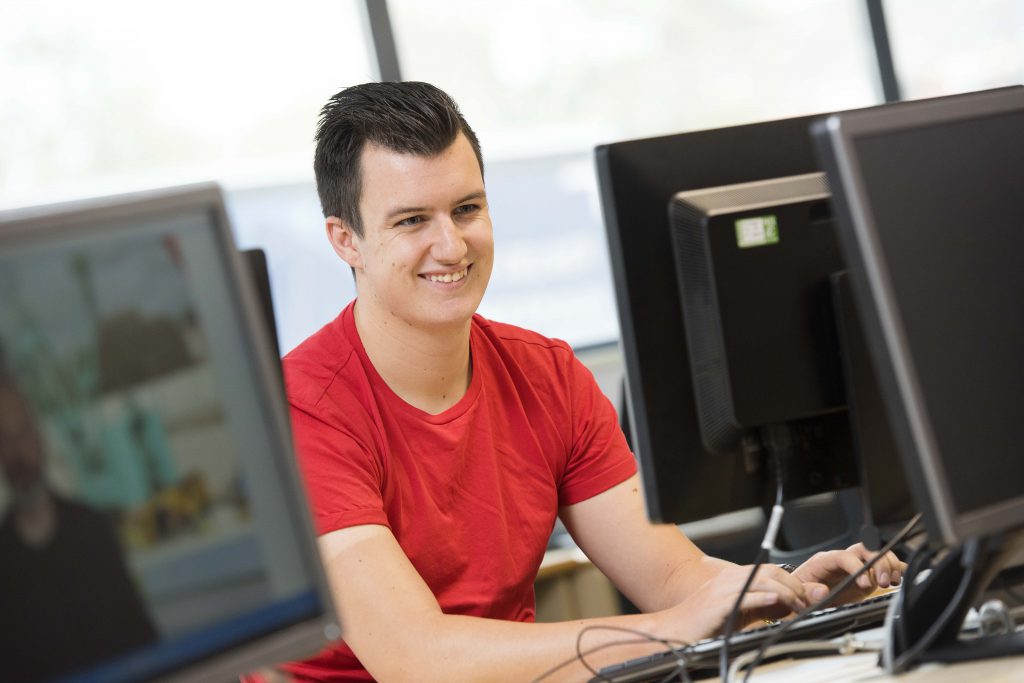 Jack Bishop, 21, studied an Aerospace Software Engineering Degree Apprenticeship with BAE Systems at the University of Central Lancashire. In this Q&A blog for National Apprenticeship Week 2018, he reveals all about his experiences.
Jack Bishop, 21, studied an Aerospace Software Engineering Degree Apprenticeship with BAE Systems at the University of Central Lancashire. In this Q&A blog for National Apprenticeship Week 2018, he reveals all about his experiences.
Why did you choose to do a degree apprenticeship?
I had an interest in Software Development from an early age and when researching how to pursue my education after college the BAE Systems Software Engineering Scheme was a no-brainer for me. The apprenticeship statement of “Earn while you learn” is a great testament to why I joined the programme. The scheme offers a great salary whilst also funding a university degree; enabling participants to start their career debt free and with four years Software Engineering experience.
How did you find and apply for your degree apprenticeship?
I found the apprenticeship by looking on the Government Apprenticeship website, from there I saw an advertisement for BAE Systems. I did not know much about the company, but after research into the business and the apprenticeship itself I quickly learned that this is the apprenticeship for me. (More information about the scheme and how to apply can be found here.)
How does the degree apprenticeship work?
The degree primarily splits into three parts that we balance on a weekly basis; the university degree, the level 4 standard and the work placements. In term time, two days of the week are spent at the University of Central Lancashire attending lectures and labs working towards the Software Engineering degree. The remainder of the week is based in a placement within a BAE Systems location (Warton Aerodrome or Samlesbury Aerodrome). Here I work on placement responsibilities, stretch objectives and completing everything to a level 4 standard.
What do you enjoy the most?
Undertaking real world placements gives me the responsibility to deliver work to a high standard and to strict deadlines. My favourite part of the job is knowing the work I do is beneficial to the products we deliver. Instead of being given tasks where I may not feel particularly useful, I know that I am developing software that will help push up the quality of the product.
What is the most challenging part?
Balancing the different aspects of the apprenticeship (Level 4 standard, placement work and the degree) was a big learning curve early on in the apprenticeship. Things like making time to attend exams at UCLan can be difficult but we are given the flexibility to create a schedule that works for us. So although the apprenticeship requires good time management skills, it is very rewarding.
What are your plans for after your degree apprenticeship?
Upon completion of the four-year apprenticeship, my performance will be reviewed and the company will help me decide how to further my career. I may return to one of the five placements in which I have been based, or I may be offered another opportunity elsewhere in the company as I know the choices to progress are far from limited.
What advice would you give to anyone planning on doing an apprenticeship?
When people ask me for advice on how to get accepted on a BAE Systems apprenticeship, or any other, I always give the same advice. Research the company that you are applying for and have a vested interest in the company and the work that you will be doing – this will make the apprenticeship more enjoyable. During the application stage, ensure that you put forward your skills, hobbies and any STEM-based activities which can enhance your application. The application window is fur months long, complete the application over a few weeks so you don’t forget any other details which could benefit you once your application is reviewed.




